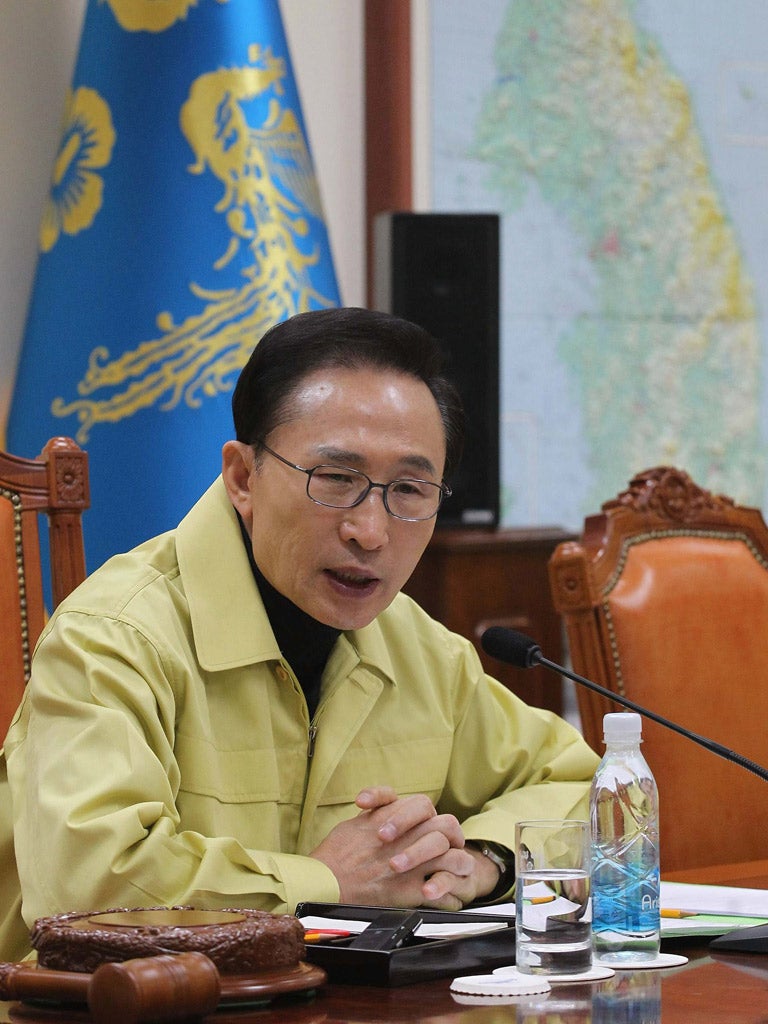North Korea and South Korea: Over the border, a wary nation waits for the repercussions
View from Seoul

Kim Jong-il's death plunged South Korea – with which the North is still technically at war after the 1950-1953 conflict that split the peninsula – into uncertainty yesterday.
President Lee Myung-bak promptly cut off contact with the North and the military was put on emergency alert.
Just hours after the death was announced, Yonhap, the South Korean news agency, reported the test-firing of a Northern short-range missile into the sea.
The mood in Seoul – just 120 miles from its rival capital Pyongyang in the North – was one of watchful waiting, with eyes on non-stop television coverage and speculation in North Korea about whether Kim Jong-il's third son Kim Jong-un, hailed as "The Great Successor", could lead effectively.
The value of South Korea's currency, the won, dipped in early trading as the announcement appeared to catch Seoul by surprise. An emergency cabinet meeting was called as the death was reported.
"In a situation like that, the systems don't allow for easy adjustment," said David Straub, former head of the Korea desk at the US State Department.
Mr Straub noted the influence of an inner circle – which includes Kim Jong-un's mother Kim Ok – as key players, along with generals who may form the power behind the throne.
After news of the death broke, President Lee is believed to have spoken to Barack Obama. "President [Obama] reaffirmed the United States' strong commitment to stability of the Korean peninsula and the security of our close ally, the Republic of Korea," the White House said.
The leaders had agreed to stay in regular contact and to "direct their national security teams to continue close coordination", its statement added. Nearly 29,000 US troops are stationed in South Korea.
In Seoul, a defence ministry spokesman said: "Monitoring and security around border areas has been strengthened. We are paying close attention to any movements by the North's military.
"All commanders are on alert and the South and US are beefing up the sharing of military intelligence. There have been no particular moves by the North's military yet."
The reconciliatory Sunshine policy between the North and South in the decade until President Lee's 2008 election had brought the sides closer. Two underground nuclear tests in October 2006 and May 2009 put a block on further discussions.
But before Kim's death, the North seemed to have softened its rhetoric against its neighbour after a nadir in relations just over a year ago when Pyongyang bombed an island near the border, killing several people.
Preparations for what would have been Kim's official 70th birthday in February and huge celebrations surrounding the 100th anniversary of the birth of his long-ruling father, Kim Il-sung, who died in 1994, appear to have taken the attention away from antagonising Seoul.
A third planned nuclear test was put on hold while Pyongyang appealed to the US and South Korea for aid as food shortages increased.
Subscribe to Independent Premium to bookmark this article
Want to bookmark your favourite articles and stories to read or reference later? Start your Independent Premium subscription today.

Join our commenting forum
Join thought-provoking conversations, follow other Independent readers and see their replies